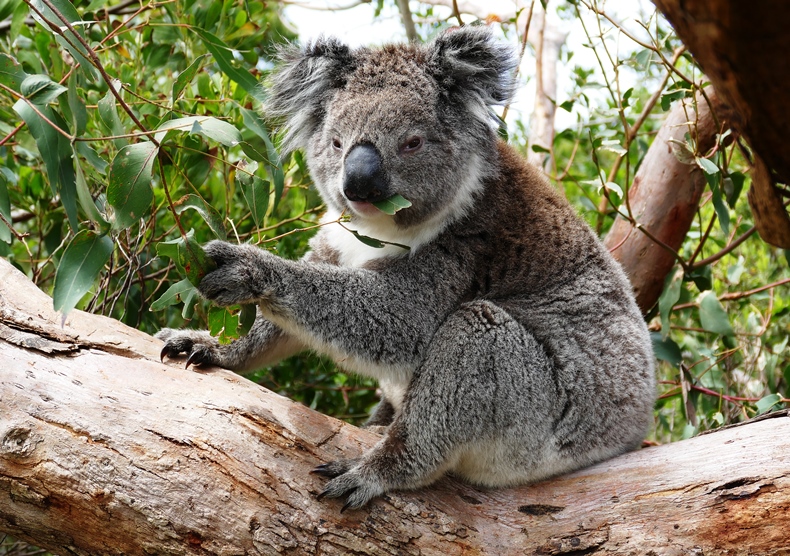Wildfires, also termed bushfires or forest fires, are currently devastating large swaths of land in Australia. Detrimental ecologic consequences of these uncontrolled combustions of forest fuels and vegetation are numerous. One of the most serious issues pertains to the survival of the koala, which is a small marsupial (pouch-bearing mammal) found only on that continent. Conservationists and scientists are concerned that the hundreds of fires presently raging in Australia, which were brought about by hotter and drier conditions exacerbated by anthropogenic climate change, may cause significant enough reductions in the population of koalas to threaten the continued existence of this species. See also: Australia; Forest fire; Global climate change; Global warming; Koala; Marsupialia

Primarily as a result of habitat destruction and deforestation, the koala (Phascolarctos cinereus) is classified as a vulnerable species by the International Union for Conservation of Nature (IUCN). As such, the koala is predicted to become endangered—and possibly extinct—unless circumstances threatening its survival and reproduction improve. Geographically, the koala population is restricted to eastern and southeastern Australia, where eucalyptus trees also grow. The koala has a specialized diet of eucalyptus leaves, which must be of a certain age from a specific species of tree, and the tree must grow upon a certain type of soil. Due to this extreme level of specificity, the koala population is highly sensitive to habitat changes. Furthermore, without a plentiful supply of eucalyptus trees, the koala would not be able to survive. See also: Deforestation; Endangered species; Eucalyptus; Extinction
The Australian Koala Foundation estimates the current population of koalas to be less than 80,000. However, the amount of habitat destruction in many locations in Australia has already limited the availability of land in which the koala can inhabit. Now, to make matters worse, the wildfires in New South Wales and Queensland that began in late 2019 have killed thousands of koalas and destroyed millions of acres of land where eucalyptus trees grow. In addition, koalas are slow-moving animals, thus limiting their ability to escape fast-moving fires, and eucalyptus trees ignite rapidly, allowing them to be destroyed unless prompt fire-fighting actions are deployed. Conservationists fear that the number of individual koala deaths may result in a dramatic reduction in the genetic variation found within regional koala populations. This curtailment of genetic variation could further weaker the species, making animals that survive the fires more susceptible to chlamydial and other harmful infections, which are often fatal. Thus, the koala is under great duress. Without an immediate halt to the changes brought about by climate change, the viability of the koala may no longer be safeguarded. See also: Chlamydia; Population ecology; Population genetics; Population viability





